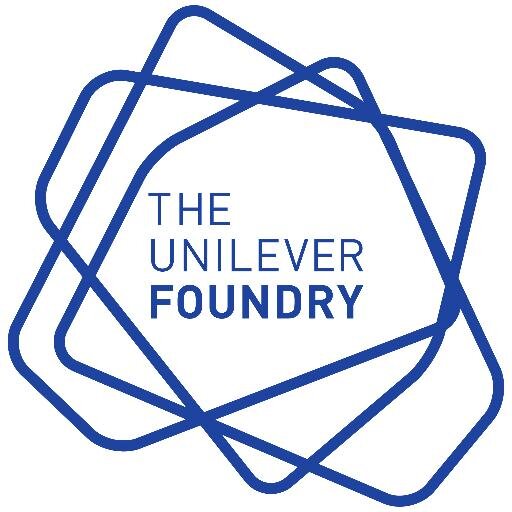Every startup wants press. And not just any press, but the kind that actually moves the needle. The type of press that sends you server-melting traffic and gets you more downloads, sign-ups or leads in one day than you managed to get in the entire last month.
Getting your startup favorably mentioned in the media is a huge win. Even if that website is a lot smaller than a Forbes, WSJ or NY Times, you still get some lift in the long-term from having your name mentioned and, hopefully, a backlink pointing back to your website. #SEOforthewin!
Now, if you want to swim upstream and compete with other major companies, you might want to consider hiring a PR team (a.k.a. an Agency). I call it a PR team because it should feel like you’re working with an extension of your company when you work with a PR agency. You should feel like they are working with you – as opposed to just for you – and that they are genuinely interested in seeing your business grow.
Before we looked into hiring an agency we had questions. How do you decide if working with an agency is right for your business? Once you decide to hire an agency, how do you get the most out of the relationship? How is the agreement structured? How much does it cost? If you’re at a startup, I’m betting you have a lot of the same questions.
Here are the 8 biggest lessons we’ve learned working in the trenches with our PR Team to get results from earned media:
1.) Know whether you’re a high-risk or low-risk business for consumers.
Lenda provides homeowners a way to refinance their mortgage online. A mortgage transaction typically involves hundreds of thousands of dollars and deciding where to get a mortgage is not something people take lightly. Homeowners do their research and want to know who they’re working with when a transaction of this size is involved.
If you’re running a meal delivery app, the level of personal risk is quite a bit lower than someone going through a process – such as getting a mortgage – that asks for a bunch of personal financial information. If your business requires a high level of trust from your users, having your startup mentioned editorially in the biggest media outlets possible will help you cultivate it.
A survey conducted by Nielsen showed that earned media about a company is the 4th most trusted form of advertising just behind consumer reviews and recommendations from people they know. As a company, you borrow some of that trust when a journalist from one of these outlets decides to mention you in a story. People expect big media outlets to do their homework and vet companies before they write about them, and knowing whether you’re a high or low risk business will help you make better decisions about what publications you want to target.
2.) Evaluate your competition.
If there’s fierce competition in your market from well-established businesses, having a PR Team that’s worked with journalists in that specific market is a must. At Lenda, we’re competing with huge banks with a ton of brand recognition. In getting an agency, our goal was to get our name out alongside big competitors so our users could learn more about us, see why we’re different, and know that we’re trustworthy.
When we talk to Lenda users, they usually tell us that they’ve googled Lenda at one point or another to learn more about us. That’s great news for us – we’ve been mentioned in Forbes, The New York Times, Wired, and many other publications. Placements in these big outlets alongside competitors is a positive signal to consumers.
3.) Use your network to find the right people.
We leaned heavily on our network to get referrals for PR firms that specialized in our industry. When you hire a firm, a huge part of what you’re hiring are the connections that firm has made with journalists in your industry. Hiring an agency that has inroads within the food industry isn’t the right fit if your business is focused on finance.
Reach out to your investors, associates, and other founders in your space to get referrals for agencies they’ve worked with or know personally. Just remember to be extremely clear about what you need. When you go the referral route, you’re more likely to find your PR Team rather than another agency trying to hook a client.
4.) Know what success looks like before hiring anyone.
For us, success was getting a quality story about Lenda in the press every month. Of course we wanted the press to drive traffic and conversions, but building trust with consumers was and continues to be our number one goal.
Knowing what you’re trying to accomplish before hiring an agency allows you to set expectations early, hold your team accountable, and have a clear plan about how you’re going to measure the success of any given PR campaign.
5.) Set good terms and avoid locking yourself into anything too long-term.
With any new agency relationship, there’s going to be a significant ramping up period. They’re building a pitch around your business, and you’re getting a feel for how they work. Any legitimate agency is going to have some kind of service agreement. Make sure to review the terms to avoid locking yourself into anything longer than 6 months – if you can, keep it even shorter than that.
You want to give your PR Team enough time to ramp up, but also want them to get to work reaching out to journalists as soon as possible. Plan on 30 days of ramping up by gathering content, constructing the pitch, identifying journalists to pitch, initial outreach and setting up a reporting structure.
6.) Be proactive.
Don’t leave your PR Team to figure out everything on their own. They have the contacts, but you’re still responsible for giving them the pitch and the content. Feed them news and content as often as possible. Point out media outlets where you want to be placed and tell them why. Nobody knows your business as well as you do. Take the driver’s seat with your team and constantly pitch them new angles.
7.) Be uber-responsive.
When your PR Team has a journalist asking for you to respond to a question, do it as fast as possible and over-deliver with your response. Journalists are on deadlines and don’t have a time to wait around for you to get back to them. Answer the questions and point out other research that might help their story. You’ll become known as a resource and increase your chances of the journalist coming back to you for future stories and answering future pitches from your PR Team.
8.) Measure everything!
Hold your PR Team accountable. Dive into your analytics and know if earned media is driving results. We look at data such as referral traffic, account activations, and new clients to determine if a story is successful. Don’t keep this information a secret from your PR Team. Share the data with them and discuss why a story did or didn’t work. This will help you shape future pitches to journalists, and you’ll get better at knowing if a story will be successful before it’s published.
Above all else, be willing to hustle and put yourself out there. If you believe your business is awesome, communicate that to potential customers through targeted placements in the right media outlets with a great PR Team. Good luck!












